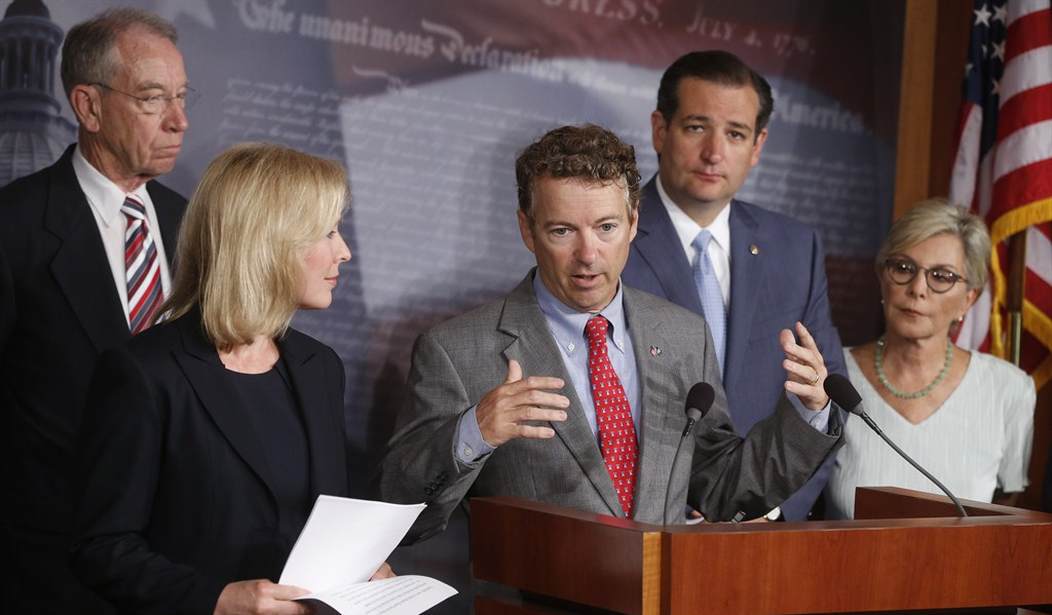The Public Religion Research Institute conducts what they call the "American Values Survey," and this year have focused particularly on how libertarians fit into the American political fabric. Libertarians are traditionally thought of as being "on the right" and presumed to be most accurately represented, of the two major parties, by the Republican Party.
But is that really true?
PRRI finds that libertarians constitute a very small segment of the GOP and have difficulty making common cause with the other ideological strains of the Republican Party. Specifically, libertarians are repelled by the religious right, which still makes up a significan portion of the conservative movement.

As Brookings' Ross Tilchin writes:
While these groups are similarly conservative on economic matters (indeed, libertarians are further to the right than white evangelicals or Tea Partiers on some economic issues, such as raising the minimum wage), they are extremely divided by their views on religion. Only 53% of libertarians describe religion as the most important thing or one among many important things in their lives. By comparison, 77% of Tea Party members say that religion is either the most important thing or one among many important things in their lives, and – not surprisingly – 94% of white evangelicals say that religion is either the most important thing or one among many important things in their lives. A full 44% of libertarians say that religion is not important in their lives or that religion is not as important as other things in their lives. Only 11% of Tea Party members and 1% of white evangelicals say that religion is not important in their lives.
...
For a variety of reasons, the burden falls on libertarians to demonstrate how they will change these dynamics. While there may be real appeal for some for Republicans to embrace a more libertarian approach, the undercurrents of the party do not paint an encouraging picture for this as a successful electoral strategy.
Recommended
There are libertarians doing important work - like Reason's Nick Gillespie and the Cato Institute's David Boaz - arguing that libertarian voters are an important bloc that the major parties should strive to win. Still, despite recent libertarian inroads like the Paul family and Justin Amash in the Republican party, there's a long way to go toward meaningful political movement within the two major parties for libertarians - and in the Republican party, a lot of people to reconcile views that may be irreconcilable.
CORRECTION/b>: The Public Religion Research Institute was previously identified as being a part of the Brookings Institute. While Brookings and PRRI often partner, they are not affiliated. Townhall regrets the error.

























Join the conversation as a VIP Member